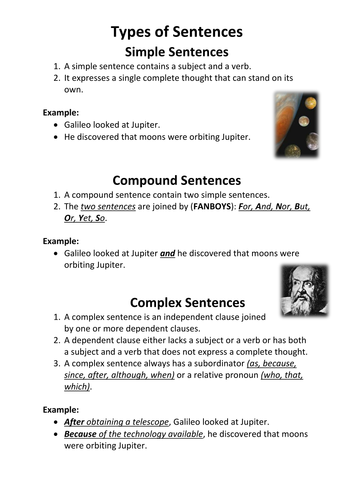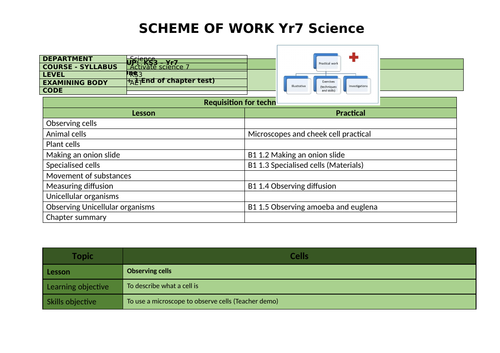243Uploads
112k+Views
55k+Downloads
All resources

P1.2 Conservation of energy
AQA GCSE Sciences (9-1)
Physics: P1 Conservation and dissipation of energy
Lesson 2: P1.2 Conservation of energy
Based on the Kerboodle Resources
The AQA Kerboodle worksheet are not included so as to be acting within the TES code of conduct.

Main life stages
BTEC Tech Award Health and Social Care Component 1
Learning aim A: Understand human growth and development across life stages and the factors that affect it
Learning aim A1: Human growth and development across life stages
Lesson 1: Main life stages
[Component 1, A1, Main life stages]

KS3 Science Yr7 Biology Student response sheets
A collection of student feedback sheets based on exam style questions.
Best used when you have identified an area of weakness.
This should help make marking meaningful.
Topics include Cells, Body systems, Reproduction,

KS3 Science Yr7 Physics Student response sheets
A collection of student feedback sheets based on exam style questions.
Best used when you have identified an area of weakness.
This should help make marking meaningful.
Topics include Forces, Sound, Light, Space

KS3 Science Yr8 Chemistry Student response sheets
A collection of student feedback sheets based on exam style questions.
Best used when you have identified an area of weakness.
This should help make marking meaningful.
Topics include Periodic Table, Separation Techniques, Metals and acids, The Earth

KS3 Science Yr7 Chemistry Student response sheets
A collection of student feedback sheets based on exam style questions.
Best used when you have identified an area of weakness.
This should help make marking meaningful.
Topics include Particles, Elements and compounds, Reactions, Acids and alkalis

KS3 Science Yr8 Physics Student response sheets
A collection of student feedback sheets based on exam style questions.
Best used when you have identified an area of weakness.
This should help make marking meaningful.
Topics include Electricity and Magnetism, Energy, Motion and pressure,

KS3 Science Yr8 Biology Student response sheets
A collection of student feedback sheets based on exam style questions.
Best used when you have identified an area of weakness.
This should help make marking meaningful.
Topics include Health and Lifestyle, Ecosystem, Adaptation and Inheritance,

Science 101 (Introduction lesson 1/4)
Designed to be the first lessons for Year 7s (1/4).
Learning outcomes: (*) State what an observation is. (*) Describe the difference between observation and inference. (*) Use data to formulate an inference about fossil distribution.
Also included are sentence types (Simple, Compound, Complex) with scientific examples to build literacy skills in later lessons.

B1.2.3 Making an onion slide (Practical)
Kerboodle Activate (1)
Chapter 1: Cells
The Kerboodle worksheet are not included so as to be acting within the TES code of conduct.

B1.4 Movement of substances
Kerboodle Activate (1)
Chapter 1: Cells
The Kerboodle worksheet are not included so as to be acting within the TES code of conduct.
Keywords: Diffusion, Concentration, Osmosis

B1.4.2 Measuring diffusion
Kerboodle Activate (1)
Chapter 1: Cells
The Kerboodle worksheet are not included so as to be acting within the TES code of conduct.
Keywords: Diffusion, Agar, Osmosis

Areas of growth and development
New BTEC Tech Award Health and Social Care
Component 1
Learning Aim A1

P5.4 Electrical current
AQA GCSE Sciences (9-1)
Physics: P5 Electricity at home
Lesson 4: P5.4 Electrical current
Based on the Kerboodle Resources
The AQA Kerboodle worksheet are not included so as to be acting within the TES code of conduct.

P4.5 Series circuits
AQA GCSE Sciences (9-1)
Physics: P4 Electric circuits
Lesson 5: P4.5 Series circuits
Based on the Kerboodle Resources
The AQA Kerboodle worksheet are not included so as to be acting within the TES code of conduct.

C1.8 Electronic structure
AQA GCSE Sciences (9-1)
Chemistry: C1 Atomic structure
Lesson 8: C1.8 Electronic structure
Based on the Kerboodle Resources
The AQA Kerboodle worksheet are not included so as to be acting within the TES code of conduct.
Keywords: Shells, Electronic structure, Nobel gases

C3.3 Properties of ionic compounds
AQA GCSE Sciences (9-1)
Chemistry: C3 Structure and bonding
Lesson 3: C3.3 Properties of ionic compounds
Based on the Kerboodle Resources
The AQA Kerboodle worksheet are not included so as to be acting within the TES code of conduct.

C3.2 Ionic compounds
AQA GCSE Sciences (9-1)
Chemistry: C3 Structure and bonding
Lesson 2: C3.2 Ionic compounds
Based on the Kerboodle Resources
The AQA Kerboodle worksheet are not included so as to be acting within the TES code of conduct.

Yr7 Cells Scheme of Work Kerboodle Activate 1 (SoW)
Content
Lesson objective
Skills objective
Learning outcomes
Keywords
Numeracy
Practical
Homework
Misconceptions
Key questions to ask
Lesson plans:
Observing cells
Animal Cells (Practical)
Plant cells
Making an onion slide (Practical)
Specialised cells (Practical)
Movement of substances
Measuring diffusion (Practical)
Unicellular organisms
Observing Unicellular Organisms (Practical)
Chapter Summary

Atomic Theory
In this lesson, learners will learn about the billiard ball model, plum pudding model, nuclear model and Bohr model of the atom.
They will also learn the contribution of James Chadwick and how to distinguish the different sub-atomic particles.




















